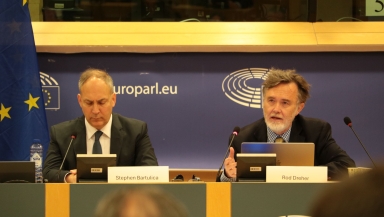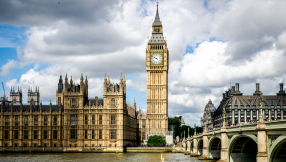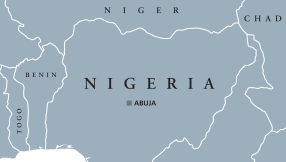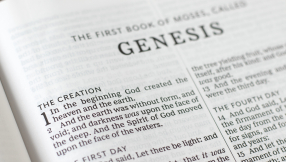
Parliamentarians and industry experts met on Wednesday to hear of the dangers of a proposed EU online censorship law.
The event at the European Parliament was co-hosted by legal advocacy group, the Alliance Defending Freedom International (ADF).
It looked specifically at the proposed Digital Services Act (DSA), although other free speech concerns were raised during the morning session.
Under the proposed DSA act, non-European tech companies such as X or Meta (Facebook’s owner) would be required to remove “illegal content” or potentially face huge fines.
Critics are concerned that the law could be used to impose censorship across the European Union, as whichever EU country has the most restrictive speech laws in the bloc could easily become the standard by which decisions are made throughout the continent.
“Free speech is again under threat on this continent in a way it hasn’t been since the nightmare of Europe’s authoritarian regimes just a few decades ago. The internet is the frontline of this assault on free speech in Europe," Paul Coleman, Executive Director of ADF International, told the meeting.
Attending the event was American writer Rod Dreher who raised concerns about "two-tier policing" in the UK and a climate of "soft totalitarianism" in the West.
"Refuse to participate in any event where one cannot speak the truth," he said, adding: "Prepare to suffer for the truth."
Speaking before the event, Stephen Bartulica, a Member of the European Parliament (MEP) from Croatia, said, “Pressure against the Digital Services Act is quickly building both inside and outside the European Parliament.
“Concern from the United States, including from their State Department and Congress, over the censorial impact of the DSA should not be ignored by the Commission — the US is a vital ally of Europe."
Bartulica added that he was committed to free speech and called upon Europe to reject online censorship.
Coleman warned that rather than protecting citizens, the DSA risks becoming a political tool.
“The DSA is one of the most serious threats to online free speech in the digital age," he said, speaking ahead of the event.
“The move towards censorship in Europe through this framework is deeply concerning and must be challenged.
“We cannot accept a transatlantic divide on free speech, where the US recommits to the protection of this fundamental freedom, while Europe tramples on it. Freedom of expression must be protected and upheld across the globe.”
During the event, Bartulica said that in some parts of Europe, simply quoting Scripture was being labelled "hate speech" because it is "impossible to define" as a legal concept.
He warned that if the DSA is used against alleged hate speech, it will lead to censorship.
A similar concern was raised by Coleman who called for democracy to be preserved across Europe.
"Those in positions of power turn to censorship because they don’t trust democracy. But this censorial impulse must be rejected. There is a rich history of valuing free speech on this continent," he said.













